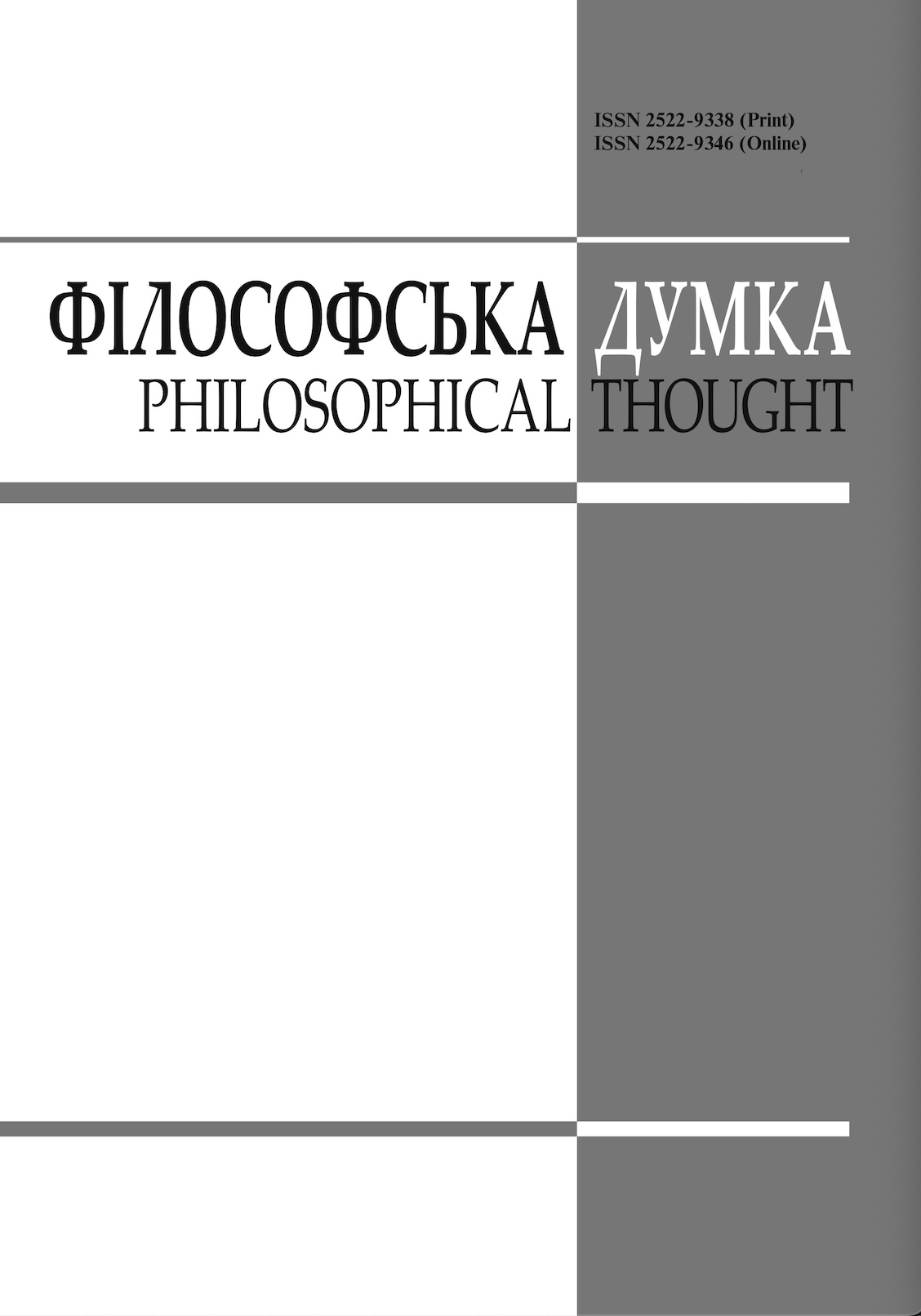MIND AND THE SUPERNATURAL IN THE PHILOSOPHICAL THEOLOGY OF DAVID BENTLEY HART
YOUNG SCIENTIST’S PAGE
DOI:
https://doi.org/10.15407/fd2025.02.169Keywords:
postmetaphysical theology, phenomenology, metaphysics, intentionality, transcendental horizon, ontology, transcendentalsAbstract
The article examines the philosophical and theological concept of American thinker David Bentley Hart regarding the relationship between mind and the supernatural. The author analyzes Hart's critique of “post-metaphysical theology”, which became prominent in continental philosophical theology in the late 20th and early 21st centuries. The article demonstrates how Hart, starting from a critique of Jean-Luc Marion's counter-intentional phenomenology and the concept of “saturated phenomenon”, develops an alternative approach that combines metaphysics and phenomenology in understanding the nature of mental life.
The central thesis of Hart's thought is the understanding of mind as having two “supernatural poles”: a transcendental horizon “from above” (orientation toward the Infinite) and the unity of the apperceptive “I” “from below”. Hart argues that both the nature and teleology of mind are rooted in God, who is simultaneously its foundation and ultimate goal. This leads to the assertion that the Mind is essentially God seeking not only to see Himself but to become Himself – infinite knowledge of infinite being, beyond any distinction between the knower and the known.
To substantiate his position, Hart draws upon both Western Christian tradition (Nicholas of Cusa, Meister Eckhart) and Eastern contemplative teachings, particularly Indian philosophy with its thesis “Atman is Brahman”. In the Christological dimension, the Incarnation is viewed as the perfect realization of the unity between human and divine nature, and theosis is understood as the natural destiny of finite minds.
Hart's philosophical theology thus presents a radical vision where the transcendent foundation of rational life and its transcendent goal are ultimately one and the same – an understanding that overcomes the modern divide between natural and supernatural through a renewed metaphysics of mind.
References
Blondel, M. L'action. (1993). Еssai d'une critique de la vie et d'une science de la pratique. Paris: Presses universitaires de France.
Deleuze, G. (1989). The Logic of Sense. Columbia University Press.
Hart, D.B. (2020). Theological Territories: A David Bentley Hart Digest. University of Notre Dame Press.
https://doi.org/10.2307/j.ctv19m638q
Hart, D.B. (2021). Orthodox Theology and the Inevitability of Metaphysics. Theology and Philosophy in Eastern Orthodoxy. James Clarke.
https://doi.org/10.2307/j.ctv24650mg.8
Hart, D.B. (2022). You are Gods: on Nature and Supernature. University of Notre Dame Press.
https://doi.org/10.2307/jj.21995478
Hart, D.B. (2024). All Things Are Full of Gods: The Mysteries of Mind and Life. Yale University Press.
https://doi.org/10.12987/9780300280395
Heidegger, M. (2002). Identity and Difference. University of Chicago Press.
Marion, J.-L. (2001). The Idol and Distance: Five Studies. Fordham University Press.
Marion, J.-L. (2007). A Saturated Phenomenon. Filozofia, 62(5), 378-402.
Meister Eckhart. (2022) Sermons. Kyiv: Tempora.
Nicholas of Cusa. (1988). De visione Dei. trans. with commentary by A.M. Jasper Hopkins. Minneapolis: The Arthur J. Banning Press.
Published
How to Cite
Issue
Section
License
Authors who publish with this journal agree to the following terms:
- Authors retain copyright and grant the journal right of first publication.
- Authors are able to enter into separate, additional contractual arrangements for the non-exclusive distribution of the journal's published version of the work (e.g., post it to an institutional repository or publish it in a book), with an acknowledgement of its initial publication in this journal.
- Authors are permitted and encouraged to post their work online (e.g., in institutional repositories or on their website) prior to and during the submission process, as it can lead to productive exchanges, as well as earlier and greater citation of published work (See The Effect of Open Access).


